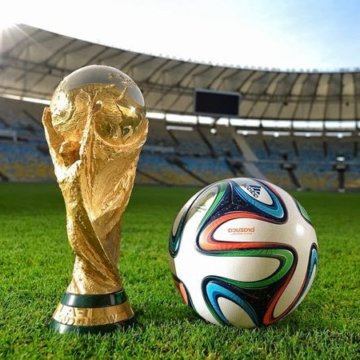- About
- Topics
- Picks
- Audio
- Story
- In-Depth
- Opinion
- News
- Donate
- Signup for our newsletterOur Editors' Best Picks.Send
Read, Debate: Engage.
I love football. I don't make a secret of it. It's something of a joke among my friends; as well as being interested in arts, culture, politics and other so-called 'high-minded' things, I have an almost irresistible love of something so base, so flawed, so mundane, so boring. They can't quite square my talk of human rights and activism with my losing my mind every time Jamie Vardy bangs one in for Leicester.
People tend to see sport as beneath or even totally divorced from the rest of society. Sport, they argue, is simply a case of slow minds and quick bodies that offers nothing to the world other than pure emotions, go-nowhere storylines, red team vs blue team drama. At worst, they say, sport encourages violent tribe mentalities, breeding racism, sexism and homophobia.
I've long argued that sport isn't separate from society, it is a fundamental part of it. Not only does it command vast amounts of wealth and public attention, it often functions as an instrument of power, particularly power that wants to put a respectable veneer on its shady doings. This normally means state and corporate powers; two kinds of powers that are often identical, or at least inseparable.
With the football World Cup beginning in fewer than 100 days in Russia, it is once again important to put a spotlight on sport and power. The Russian government is a violent, corrupt and repressive kleptocracy – so we argue here in the West (even though we take solace in a Euro-American axis of power, which is just as corrupt and reckless). Even so, why then are we trying to be responsible in an irresponsible world still suckered in to legitimising such regimes by watching the games? Do we continue onto 2022 and watch the games in Qatar, even though there have been well-documented cases of corporate abuses of the migrant workers who are currently building the stadiums? Do we simply continue to argue that sport has nothing to do with society, so we can ignore the logged abuses, or even, watch the games without guilty-consciences?
Games are used to showcase countries as peaceful, kind and investor-friendly, even if people are brutalised in the process. And contonuing to blissfully follow the games – with the political and economical exploitation that is undergoing in the background – is outrageous. As long as our favourite sport events remain in the shadows of global tyrannic powers, hopefully one day following them will be seen as no different from the ancient entertainment of death in the Colosseum.
It's not much, I know, but this year, I will not watch the games in Russia. I do not want to give them my consent.
